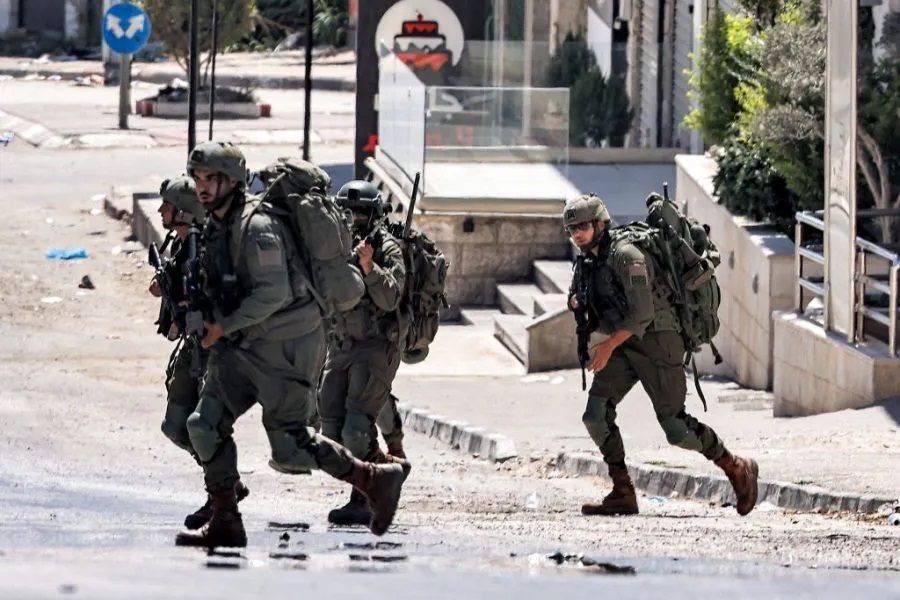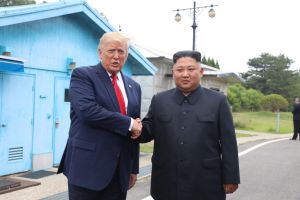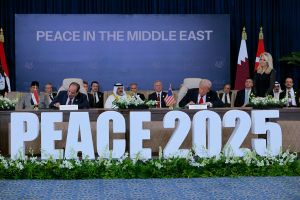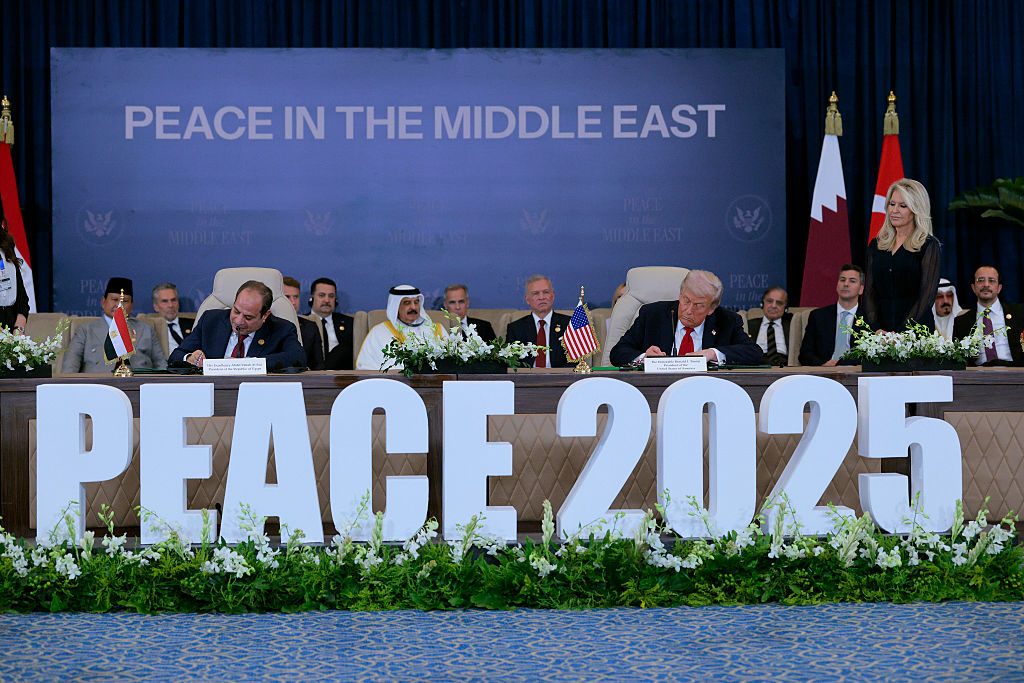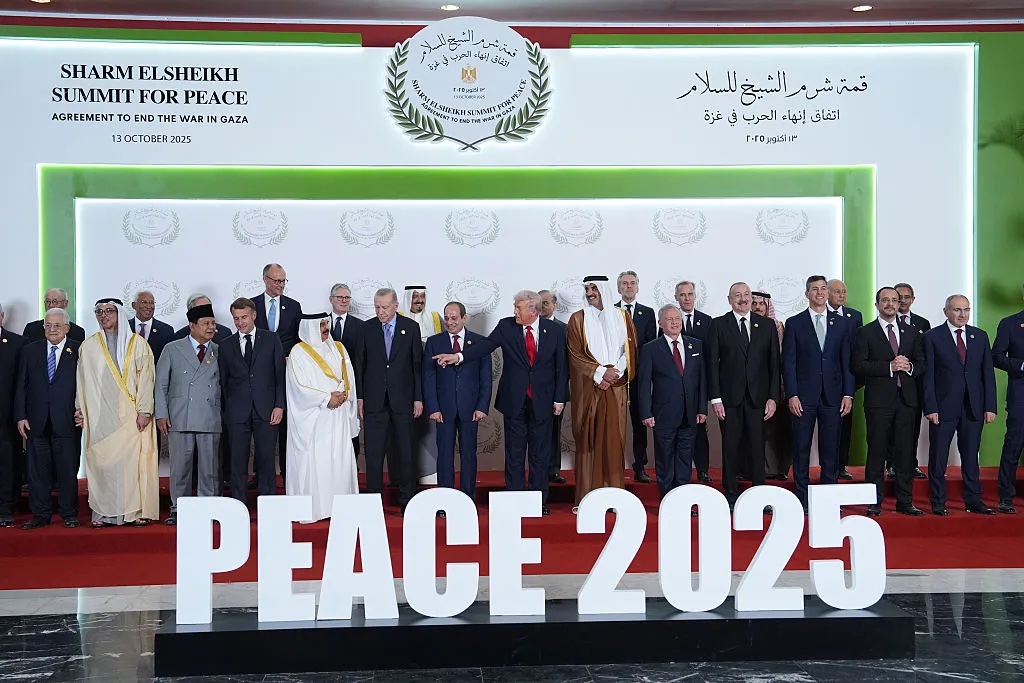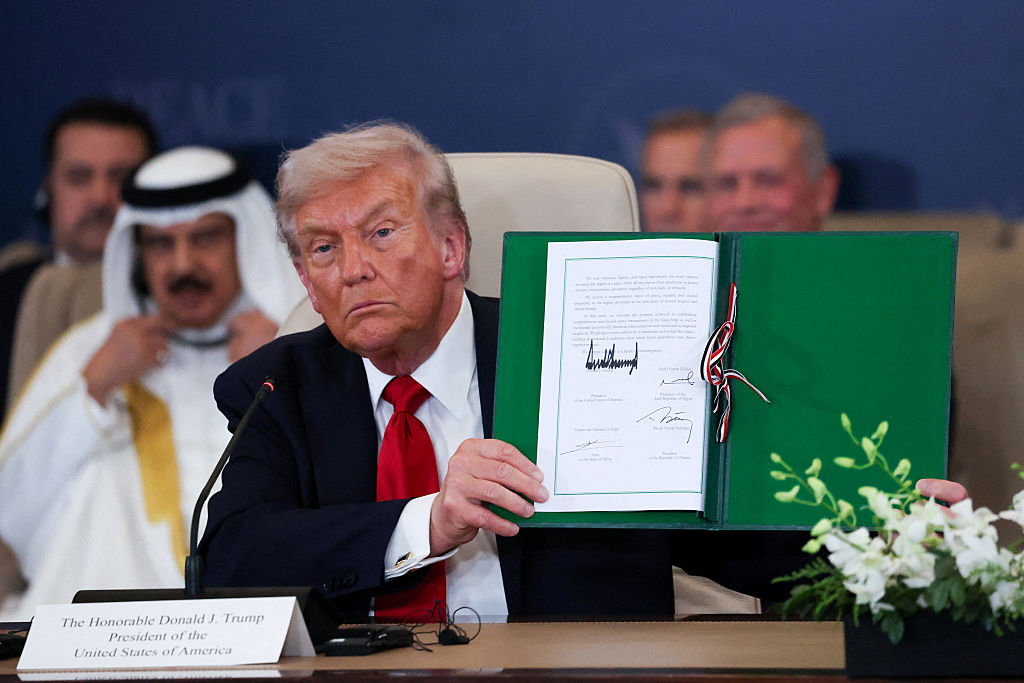Two senior US officials are in the Middle East this week, with the joint mission of negotiating an end to the current war between Israel and a number of Iran-backed Islamist militias. Secretary of State Anthony Blinken arrived in Israel on Tuesday. US Special Envoy on Lebanon Amos Hochstein was in Beirut on Monday. Are the two faced with a mission impossible, or is there a chance that their efforts may forge a pathway to bring the year-long conflict to an end?
At the start of this week, Israeli aircraft carried out a series of attacks on Hezbollah targets deep inside Lebanon. These included the headquarters of the organization’s aerial division. Hezbollah responded with rocket fire on central and northern Tel Aviv. Even as the daily exchanges of fire continue, Israeli ground forces are pressing on with their methodical work, rooting out and destroying Hezbollah infrastructure on the Lebanese side of the border.
Israel currently feels it has the advantage and is pushing ahead with degrading its enemies’ capacities
Hochstein, speaking after meetings with Lebanese parliamentary speaker and Amal movement leader Nabih Berri and Prime Minister Najib Mikati, said that only a new mechanism to ensure that UN resolution 1701 was implemented “fairly, accurately and transparently” could ensure an end to the war. His mission, he said, was to find the formula for such a mechanism. Hochstein also noted that it was his “sixth or maybe seventh” visit to the country over the last year. This formula, evidently then, remains elusive.
The reason for its elusiveness, by contrast, is plainly visible. Hochstein mentioned “the government of Lebanon, the state of Lebanon, as well as the government of Israel” as the factors he is seeking to bring together to find a way to implement the war-ending UN resolution 1701.
Each of these elements, for different reasons, is unlikely to produce what the US envoy wants. The government of Lebanon is unable to implement or enforce any decision regarding 1701 or anything else because it is not in fact a government at all — in the usually understood sense of that word anyway. Not only does it not enjoy a monopoly on the means of violence within Lebanese territory, but it does not even command the single strongest military force. That honor belongs to Hezbollah, the Iranian-inserted proxy which, in most ways that matter, functions as the true government of Lebanon. Similarly, the Lebanese “state” is unable to impose its will on the stronger de facto Hezbollah/Iran government.
All this means that two of the pillars the US envoy listed as his preferred means for implementing a new mechanism for making Resolution 1701 a reality on the ground are quite plainly not fit for purpose. What of the third element on the list — Israel?
The Israeli stance is, to a great extent, determined by the realities facing the Lebanese government and state. Israel is clearly uninterested in returning to the status quo that existed between August 2006, and October 8, 2023. According to that arrangement, Lebanese and UN troops tasked with ensuring that Hezbollah remained north of the Litani River, in accordance with the provisions of 1701, carried out routine, polite and inoffensive patrolling along the highways of south Lebanon. These patrols made sure to keep out of the way of Hezbollah, which at the same time was building up a massive military capacity in the area. Any new “mechanism” that relied on the Lebanese armed forces and UN peace keeping mission would almost certainly replicate this pre-war reality.
Israel, as a result, isn’t buying it. The IDF is currently busy dismantling the war machine that Hezbollah has spent eighteen years building. A report published this week by the Axios news website detailed Israeli conditions for a renewed ceasefire on the northern border. These included, crucially, freedom for Israeli forces to engage in “active reinforcement” of efforts to prevent Hezbollah rearmament south of the Litani, and freedom of operation for Israeli aircraft over the skies of Lebanon.
Israel feels confident enough to make such demands because it is currently winning. It has decimated Hezbollah’s leadership, taken out a large percentage of its mid-level operatives and destroyed a considerable part of the movement’s missile and rocket stocks. The IDF’s ground forces are engaging Hezbollah fighters daily close to the border. So far, the losses have been manageable. The depth to which Israeli intelligence has penetrated Hezbollah and the IRGC’s ranks has become apparent. The carefully constructed image of uber-competence and menace that Lebanese Hezbollah in particular has built up over recent years and decades has been decisively broken. As a result, Israel evidently feels no need to countenance a return to the pre-war situation.
At the same time, there is no chance that the official Lebanese state will accept Israel’s demands. They reflect Israel’s accurate assessment that the sovereignty of this body is fictional. But there is no reason to expect the official Lebanese state to acknowledge this itself. As a result, it is likely that Envoy Hochstein will be making an eighth, and no doubt in due course a ninth and a tenth mission to Lebanon to advance the White House’s proposals.
The situation regarding Blinken’s mission in Israel is essentially similar. Speculation that the removal of Hamas leader Yahya Sinwar might lead to greater flexibility in Hamas’s stance toward a ceasefire and hostage release appears to have been groundless. There is no reason to think that Mohammed Sinwar, the dead leader’s brother and replacement, will take a more accommodating stance than his sibling regarding the demand for a complete Israeli withdrawal from Gaza and the consequent survival and reconstruction of Hamas governance in the area. Hamas fighters have demonstrated in recent days their ability to still inflict significant losses on the IDF, with the killing of Colonel Ihsan Daksa on Sunday. He was the most high-ranking IDF officer to have been killed in Gaza since the beginning of the war.
But Daksa’s death does not change the general picture in Gaza. There, Hamas central command and control has ceased to exist, and its ability to fire missiles and rockets at Israel reduced to nuisance level.
In both the north and the south, Israel currently feels it has the advantage and is pushing ahead with degrading its enemies’ capacities. Neither Hezbollah nor Hamas, meanwhile, appear inclined to soften their positions, despite the losses. For as long as this situation pertains, America’s current shuttle diplomacy is likely to yield little, save generating extra air miles for Messrs. Hochstein and Blinken.
This article was originally published on The Spectator’s UK website.



